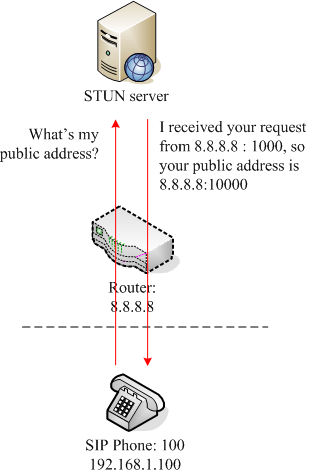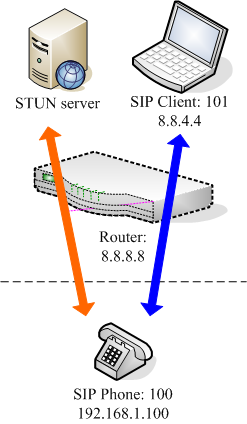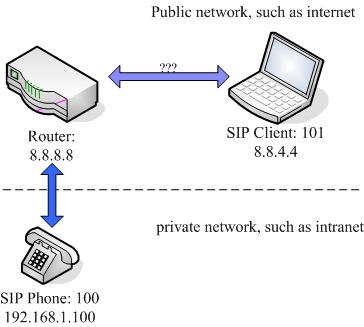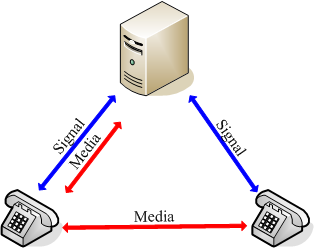cloud-miniSipServer upgraded
Cloud MSS is upgraded to support CDR (Call Detail Report) function.
If the calls have been in talk stage, cloud-MSS will save them CDR informations, and customers can visit these CDRs through website.
Cloud MSS is upgraded to support CDR (Call Detail Report) function.
If the calls have been in talk stage, cloud-MSS will save them CDR informations, and customers can visit these CDRs through website.
We upgrade cloud-miniSipServer to support “Dial plan” features. Customers can use these features to control the calls very flexibly. When you sign in your account, you will get “Dial plan” features in command list at the left side .
And the trial duration of each call for trial accounts has been upgraded from 30 seconds to 60 seconds according to most customers’ requirements.
Please enjoy it and have a good day!
MSS stable versions are upgraded to V3.1.6 (build 20110813).
This version is upgraded to support voice mail nesting follow-me services. When a local extension has been configured with voice mail and following me services, the voice mail service will be triggerred if all follow-me parties don’t answer the incoming call.
Some bugs in web management are also fixed at the same time.
These modifications have been merged to V4 latest version.
In previous blog, we have discussed why there is one-way audio problem. In this blog, we will continue our discussion to find how to resolve this problem.
As we can see, the SIP phone (100) sends its private address to SIP client (101) and this makes the one-way problem, so we can think why not send its public address which is 8.8.8.8 to the SIP client? If it can do that, SIP client can send its audio stream to this public address and the router will transfer it to the SIP phone, then SIP phone can hear SIP client, right?
Right! It is a perfect solution. But we need ask: how can the SIP phone (100) know its public address?
The answer is STUN. STUN means “Simple Traversal of User Datagram Protocol (UDP) through Network Address Translators (NATs)”. It is a very long definition. Simplely, STUN is a tool to discover public address for devices deployed in a private network.
Please refer to following figure:

Before SIP phone makes a call, it asks STUN server firstly to get its public address. After that, in our previous scenario, when SIP phone begins to make a call, it can say: Hi, I am 100, my audio address is 8.8.8.8:10000. Please send audio stream to me.
By the way, here one public address means one public IP address plus one port. For example, in “8.8.8.8:10000”, “8.8.8.8” is public IP address, and “10000” is port. “8.8.8.8:10001” is another public address.
Since 8.8.8.8 is a public address, it is no problem for SIP client to send its audio stream to this address. Then, both call sides can hear each other now.
Almost all SIP devices, no matter SIP phones or SIP clients, can support STUN. The only thing we need know is we need indicate which STUN server we should use. In our step by step document, we give a simple example for X-lite, please refer to following document for details:
http://www.myvoipapp.com/docs/faq/setup_ippbx_for_small_business_step_by_step/index.html#faq_stun
Can STUN resolve all one-way / no-way audio problem?
No, it can work well in most scenarios, but it cannot resolve all problems. It depends on the private network type. Simplely, it depends on the routers ( of course, in some network, it can be firewall probably too).

Please look at above figure. There are two sessions: one for request public address from STUN server. Another is call session between SIP phone and SIP client.
As we know, the router will keep the mapping relationship between public network address and private network address. By default, most routers will assign and keep the same mapping for different sessions if they are from the same device in the private network. So the SIP phone will have the same public address in these two sessions.
But some routers or networks will assign different mapping for different sessions, that means the sip phone will have different public address for these two sessions, so it still cannot know its public address of the session between it and SIP client.
If STUN cannot resolve your one-way audio problem, the root reason could be the router or your network type, and the final perfect solution is establish a VPN network to include all your SIP phones and SIP clients. That’s another topic.
Almost all of us will meet this problem when we deploy our first VoIP network. We are often confused: why I cannot hear peer guy but he can hear me? why we cannot hear each other?
The root reason is that there is private network and public network. If both sides are in different network, the problem will happen. Please look at below figure which desribe a very simple VoIP network:

In this simple network, we have two VoIP devices, one is SIP phone whose number is 100, another is SIP client whose number is 101.
SIP phone is in a private network and its private address is 192.168.1.100, and its router is connected to public network with address 8.8.8.8.
SIP client is installed in one PC which is in the public network with address 8.8.4.4.
So when SIP phone makes a call to the SIP client, what will happen?
SIP phone say: Hi, I am 100, my audio address is 192.168.1.100. Please send audio stream to me.
SIP client answers it: ok. I am 101, my audio address is 8.8.4.4. Please send your audio to me.
SIP phone sends audio stream to SIP client. Since “8.8.4.4 ” is a public address, it is no problem for SIP client to receive the audio stream from SIP phone. That means SIP client can hear SIP phone now.
SIP client sends its audio stream to SIP phone “192.168.1.100”. You can see it is a private address and cannot be reached by SIP client which is in public address. SIP client will fail to send its audio stream to SIP phone in fact.
So finally, SIP client can hear SIP phone, but SIP phone cannot hear SIP client. This is a very typical one-way audio problem.
Then, how can we resolve it? To be continue …… 🙂
We are often asked this question about audio codec or video calls. Some customers want to confirm whether miniSIPServer can work well with their SIP phones/clients who can support several audio codecs or video calls.
We often answer that it depends on their own SIP phones/clients. miniSIPServer, not matter local-miniSIPServer or cloud-miniSIPServer, doesn’t care media codec by default.
Why we say that?
Please have a look at following figure which describes a basic media process model of miniSIPServer in a normal basic call.
From this figure, we can see:
(1) miniSIPServer only controls call signals.
(2) Media stream is processed by the clients themselves.
This model will reduce the work-load of the server since all media streams are bypass server, so it is unnecessary for the server to support several media codecs.
But in some service scenarios, miniSIPServer need play audio to the SIP phones. For example, in auto-attendant or calling card services, miniSIPServer need prompt audio announcement and collect user input information. Obviously, miniSIPServer is required to support audio codecs in these scenarios.
That’s right. If miniSIPServer need process audio stream, it can support two audio codecs: G711a (PCMA) and G711u (PCMU).
By the way, after playing audio stream, the final media stream will be processed still in end-to-end model. Please refer to following media model of miniSIPServer for these scenarios:

We are very glad to announce that miniSipServer cloud is released today.
“miniSipServer cloud” is one kind of host-pbx service for small business and customers can add more or reduce communication capabilities according to their real requirements. It is very flexible.
Customers will not need to setup local sip server or pbx. It is in cloud and it is FREE to try as many times as you want.
“miniSipServer cloud” is built with miniSipServer and Amazon EC2. It is the beginning of our cloud-communication. It is so great and we decide to assign “minisipserver.com” to it. so you can begin to try the latest cloud-pbx at following linker:
By default, there isn’t administrator password in MSS. So if the customers enable HTTP server, it could be very dangerous without password protection.
In this new upgration, the HTTP server will not be startted if there isn’t administrator password in system configuration.
This modification is also merged to latest V4 version.
LTS version is upgraded to V2.10.7 to discard 3PCC process in pickup service because some old voip gateways or phones cannot accept 3PCC process.
V3 is upgraded to V3.1.4, and V4 versions are upgraded together to include above modification. In additional, they are also updated to fix some bugs in web management system.